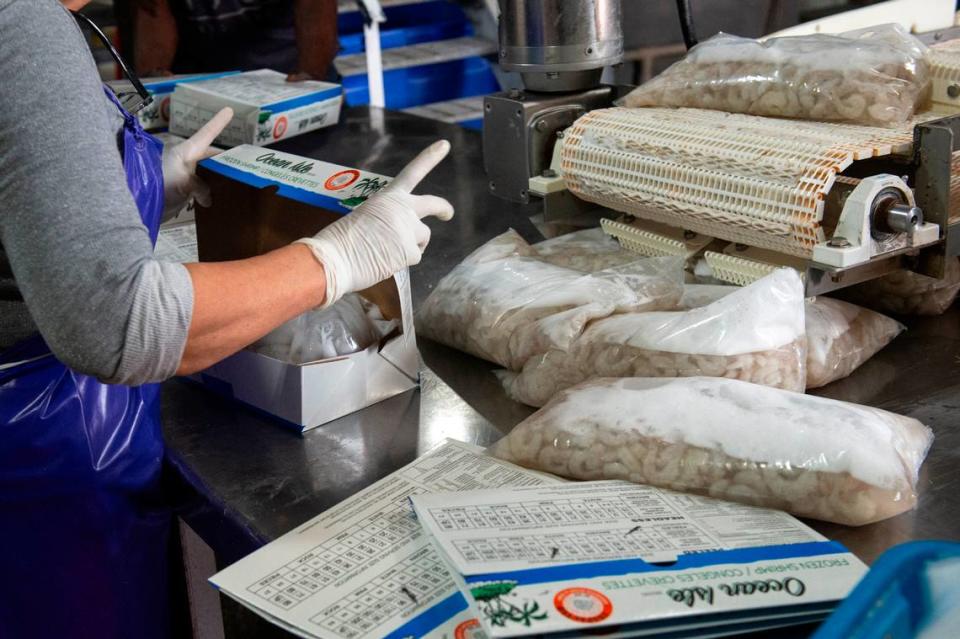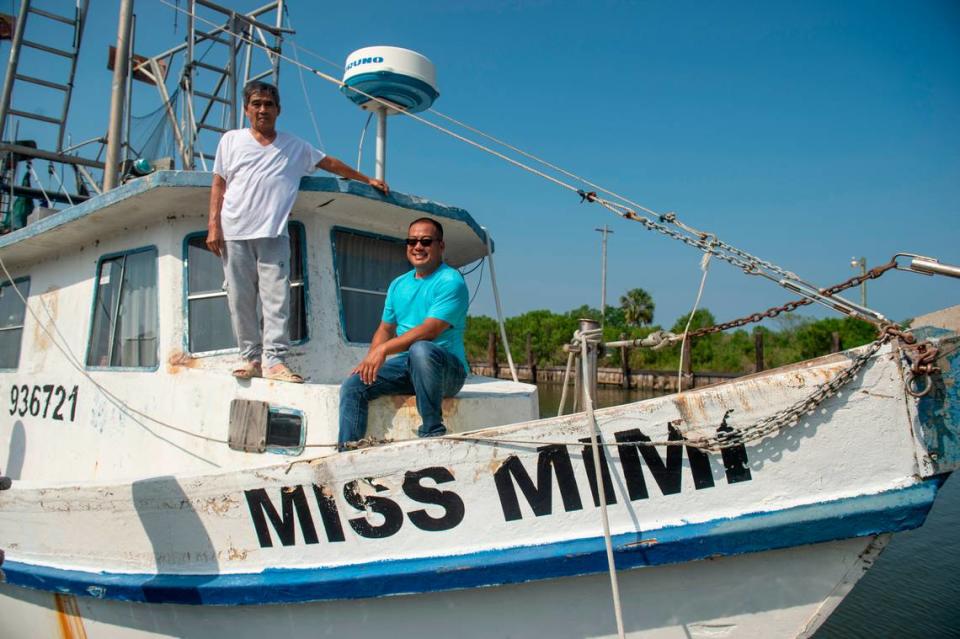Imported seafood is killing a MS Coast industry. Could truth in restaurant menus help?
The last of the fishermen whose boats once dotted the Mississippi Coast’s warm waters are worried.
Their customers are leaving. Their sales are down.
And soon, the sons and daughters of the old seafood families say, the only way of life they have ever known will disappear.
“I don’t see a future,” said Bethany Fayard, a fourth generation processor and distributor who is fighting to withstand the pressure and sell to customers, same as always. “The industry is on life support.”
The problem, fishermen and processors say, is this: foreign imports have won.

Outrage burst from docks and harbors last week with word that the famed Biloxi restaurant Mary Mahoney’s pleaded guilty to passing off frozen, foreign fish as fresh Gulf catch. Mahoney’s – which some righteously defended and others said irreparably broke their trust – held a cracked mirror up to a place that has long prided itself on local seafood.
“People do not even have a clue what they’re eating,” said David Gautier, who has spent all his life in the seafood business and owns a dock in the Pass Christian Harbor. “They think it’s right out of the Gulf.”
That belief fractured last week, and over and over again, the people who once made good money from the water said the same thing: the Mississippi Coast’s demand for seafood is greater than the Gulf provides.
And so it needs imports.
There is one thing, fishermen say, that might help them hold their own in the David and Goliath battle against importing giants like India and Indonesia: Mississippi’s government could force restaurants to tell customers the truth.
And that could bring a higher premium for what fishermen sell.
Other states have done so already. Governors in Alabama and Louisiana signed laws this year that say restaurants must tell their diners, at least in some dishes, whether the seafood comes from overseas.
Mississippi tried to do the same in 2021. But that bill later died, and was never signed by the governor.
“We’ve been screaming the last 25 years,” said Frank Parker, a commercial fisherman on the Mississippi Coast. “Just ask where your shrimp come from.”
The dilemma reflects a struggle of small business versus global power, and of tradition versus modernity. But it is also a story of a changing Coast that, like so many places across the Gulf South, has quietly embraced imports to survive.
“Back in the day, you could make a really good living,” said Maria Tran, who fishes for shrimp out of Ocean Springs and tries to get her customers to buy local. But the imports, she said, are “impacting everything. It’s very discouraging.”
That has led to a reckoning in a place that once billed itself the “Seafood Capital of the World.” Roughly 80 percent of seafood in the U.S. is shipped from overseas, according to the federal government, and demand for foreign imports rose steadily over the past three decades at the same time the Gulf and its fishermen faced blow after blow.
The oil spill.
Freshwater intrusion.
Government regulation.
Fishermens’ ranks have dwindled so much that the Mississippi Department of Marine Resources said it issued just 285 commercial shrimping licenses this season — down from the more than 750 it issued 10 years ago. And now, the cheap price of imports coupled with everything else has driven the local seafood industry to what the holdouts say is its last breath.

The idea of a labeling law creates a tough proposition for restaurants, who just like fishermen, are trying to meet demand and protect their bottom line. Some say the imports, which are often cultivated to the perfect size and shape in overseas ponds, are easier to handle in cooking. Distributors also said labeling laws in other states have disincentivized imports, which have brought millions of dollars in revenue to Mississippi and generated hundreds of jobs since the early 2000s.
“You have to balance the stakes,” said Ben Posadas, a research and extension professor of economics who has studied imports for years at Mississippi State University. “It’s hard to do.”
Locals say fresh catch is just better.
“Would I pay more for domestic shrimp?” Gautier asked. “Of course I would.”
Still, “sometimes, you have to buy imports,” said Darlene Kimball, whose family has sold seafood in Pass Christian since the 1930s. On a breezy day at the harbor, she said she buys U.S. products whenever she can: crab meat from Alabama. Oysters from Louisiana. Shrimp and catfish from the Gulf. When there is nothing else in state: seafood from Canada, or the East Coast.
As many as ten people once worked her counter. Now it is only her. The old boom her father used to haul in oysters has gone to rust.
Fed-up fishermen have also sought help from Washington. The American Shrimp Processors Association filed a trade petition with the federal government last year that sought to increase the tariff on imported shrimp. As a result, the federal government found imports undersold local products and forced American shrimpers to drastically cut prices. The government imposed some duties on foreign imports in March and will make its final decision in October.
Some are unsure even that would help. Tariffs, Parker said, “have never really amounted to a hill of beans.”

“If something doesn’t change, people aren’t going to have to worry about restaurants substituting imports for domestic,” Fayard said, “because there will be no domestic.” And that is leading to new means of survival. Rodney Samuels, a lifelong fisherman who owns a dock in Bayou La Batre, blamed politics for depriving people of domestic fish and said the struggle has forced him to diversify his business. He deals more with bait. He fishes for less regulated, deep water fish. He has even opened a bar.
The pressures are so great that Vietnamese fishermen – who fled war four decades ago and became the lifeblood of the Mississippi Coast seafood industry – are encouraging their children to leave the business.
“It’s kind of a dire situation,” said Parker, who still is optimistic that local seafood will always hold power here, because of its history. He still fishes. He says he is catching more shrimp than ever.
“You try to do the best you can,” he said.
“You have to.”



